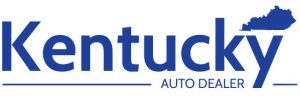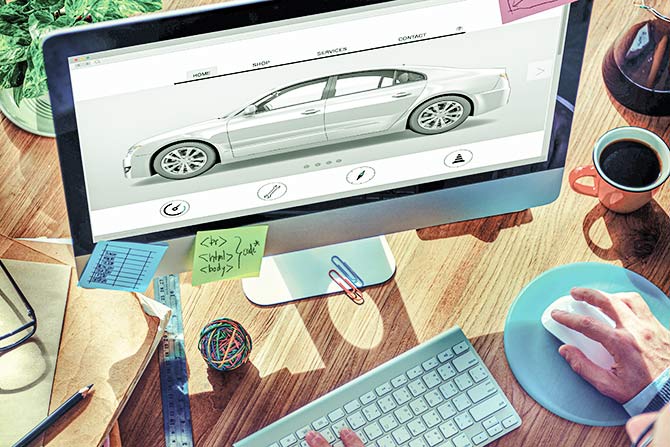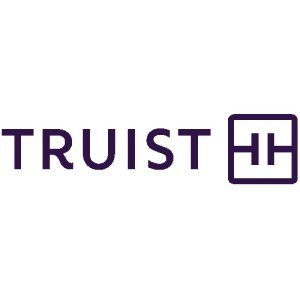Do I Stay in the Business or Exit?
The auto retail market has remained strong in recent years — despite a turbulent economy — leaving many dealers in a surprisingly secure position. While that may be welcome news today, it’s only natural to wonder what tomorrow might hold for your dealership.
You’ll need to adapt to keep up with recent technologies converging on the business. That includes retooling the services you offer and training your staff as more electric vehicles (EVs) become available. Servicing automated vehicles will add even more complexity and require additional skills.
Don’t forget the rise in online customer shopping and buying. There’ll be more rebuilding needed to restructure your entire sales process from top to bottom using the latest technology.
These changes will all require investment, management time and organizational energy. Larger dealership groups with more scale and greater access to capital should have no problem making these changes, but such opportunities could present significant challenges for smaller dealers.
This combination of capital needs and major technology-driven change in a fragmented industry like auto retailing creates the perfect conditions for consolidation. If you’ve ever thought about acquiring other businesses or selling and transitioning your own, now’s the time to consider your options.
Take Advantage of the Thriving Buy-Sell Market
Start by analyzing the state of play with mergers and acquisitions in auto retailing. Buy-sell activity in the auto retail market is booming right now. Dealership profitability continues to outperform expectations, and there’s plenty of available capital to put to work for your business. Public dealership companies want to expand, family offices are looking for investment opportunities and private equity (PE) firms like the high rates of return on equity in the auto industry. Blue sky values remain high for top franchise brands, with sales volume — a driver of brand value — pushing the leading premium and mainstream brands above their competitors. Import brands are favored over domestic brands, and buyers today are more comfortable with longer payback periods following acquisitions.
“We’re seeing more and more private equity, family office and institutional investment in the automotive retail business, which for decades was closed to outside capital,” explains James Taylor, Head of Automotive at Truist Securities. “As we move forward, we’re going to see even more of this type of capital infusion. Businesses will likely stay private, but the capital will be coming in from outside the automotive industry.”
Consolidation will continue as dealerships expand through acquisitions and outside investors move more capital into the business. As the size and scale of a dealership offer even greater competitive advantages, the number of owners may decline faster than the historical 2% annual rate.
Consider transitioning your business. Are you ready to take stock of the future you’ve envisioned for yourself and your dealership? Start by asking these questions:
- Do you want to continue working as much as you are today?
- Are there other projects you would prefer to be working on right now?
- How will potential disruptors — like EVs, automated vehicles and digital experiences — affect your business strategy and desire to continue in the industry?
- Are your plans for the future dependent upon the value of your real estate holdings?
- Should you stay and expand your business by acquiring additional franchises/locations that would provide economies of scale and contribute to your bottom line?
- How would taking on private capital partners affect the future of your dealership?
A transition decision is a major one. Considering opportunities and long-term plans now will help you and your business prepare for shifts in the economy later.
Think About the Future of Your Dealership
While planning your next steps, be sure to offer suggestions to help guide the direction of your business after you’re gone. There are plenty of ways your company can still support your employees, your community, and — depending on how you structure your exit — even you after the transition.
Make Sure Your Family Is Equipped To Handle a Transition
In an industry where privately-owned dealerships are largely comprised of family-owned and operated businesses, family transitions are common.
Do you view your business as a legacy for your children and grandchildren? Would you like to see your heirs working in the company that you built? What if your children aren’t interested in running the business? What if they need more experience or don’t have the necessary skill set to be successful owners/operators?
You might have many reasons to avoid planning a family succession. Maybe the planning cost is too high, or you don’t want to give up control. Maybe you’d rather not think about your own mortality. Families that successfully integrate the next generation into the business start the process early, providing support, education and experience.
If you’d rather not burden your heirs with costly litigation, unexpected taxes, and contentious relationships, or if you don’t want to leave them a failed business, plan ahead.
anufacturers are more likely to approve a family transition if comprehensive planning has taken place well in advance.
Taxes are an especially important consideration for any transition plan. Tax regulations that specifically apply to family-owned businesses could reduce or eliminate certain discounts and deductions which affect transfer value, so be sure to consult your tax advisors before finalizing any transition plans.
What Happens When Your Heirs Refuse To Run the Business
When keeping your business in the family isn’t an option, consider selling it to private or public groups to secure funding for the next stage of your life.
Privately-owned dealership groups are looking to add additional franchises to complement their own dealerships. They have the experience, staff and organizational skills to take over your business with relatively little disruption. Private dealers that have strong track records often receive manufacturer approval with ease, simplifying the closing process.
Family offices that aren’t currently in the automotive sector have emerged as a non-strategic investor group. Family offices evaluate investment opportunities based on long-term viability. They want to diversify their holdings and collect a solid return on their investments. They’re able to identify with a single-sector business as well as the family aspects of auto retailing. Not quite ready to exit the business? Want to take equity out of your company? Family office investors usually allow next-generation dealers to remain minority partners while providing you with liquidity immediately at favorable valuations.
Private equity firms (PE) are increasingly moving into the dealership market in pursuit of promising returns. PE buyers are often willing to accept longer payback periods, particularly when investing in premium franchise segments. The key to a successful PE acquisition is securing experienced management to lead the dealership/dealer group after the acquisition. PE firms typically retain dealership managers as minority partners to run the business and smooth the transition process, which helps secure manufacturer approval.
Public groups need to grow to meet investor expectations. They’re expanding their territories, shoring up existing footprints and using their scale to invest in new technologies. Ready to leave your company but don’t have a succession plan in place yet? Public companies might be a good fit for you and your business. They have leadership experience and performance records that can help secure manufacturer approval for your transition deal.
Create an Active Succession Plan
Are you a seller, buyer or shareholder in today’s market? If meeting looming technology changes head-on is a challenge that excites you, consider acquiring another dealership. Investing in a company that aligns with your goals can be a prudent and lucrative decision.
Growth through strategic purchases of complementary franchises and/or dealer locations can improve your economies of scale, making major expenditures and improvements more cost-efficient. That can boost profits and business value, setting you up for even greater opportunities in the future.
Make a Decision
Should you stay or should you go? It’s a complex decision. Dealership valuation, franchise multiples, manufacturer approval, legacy and succession considerations all come into play. Preparing for an eventual transition early on — putting your personal finances in order, preparing the business, and maximizing your company’s value — will help ensure the integrity of your dealership and your retirement funding.
Do you want to stay in the business, or are you ready to move on? Your options are plentiful. Talk to your Truist relationship manager about what’s best for you and your dealership, and they can schedule a confidential discussion on your options with the Truist Securities Automotive Retail Team. Go to truist.com for more information.







